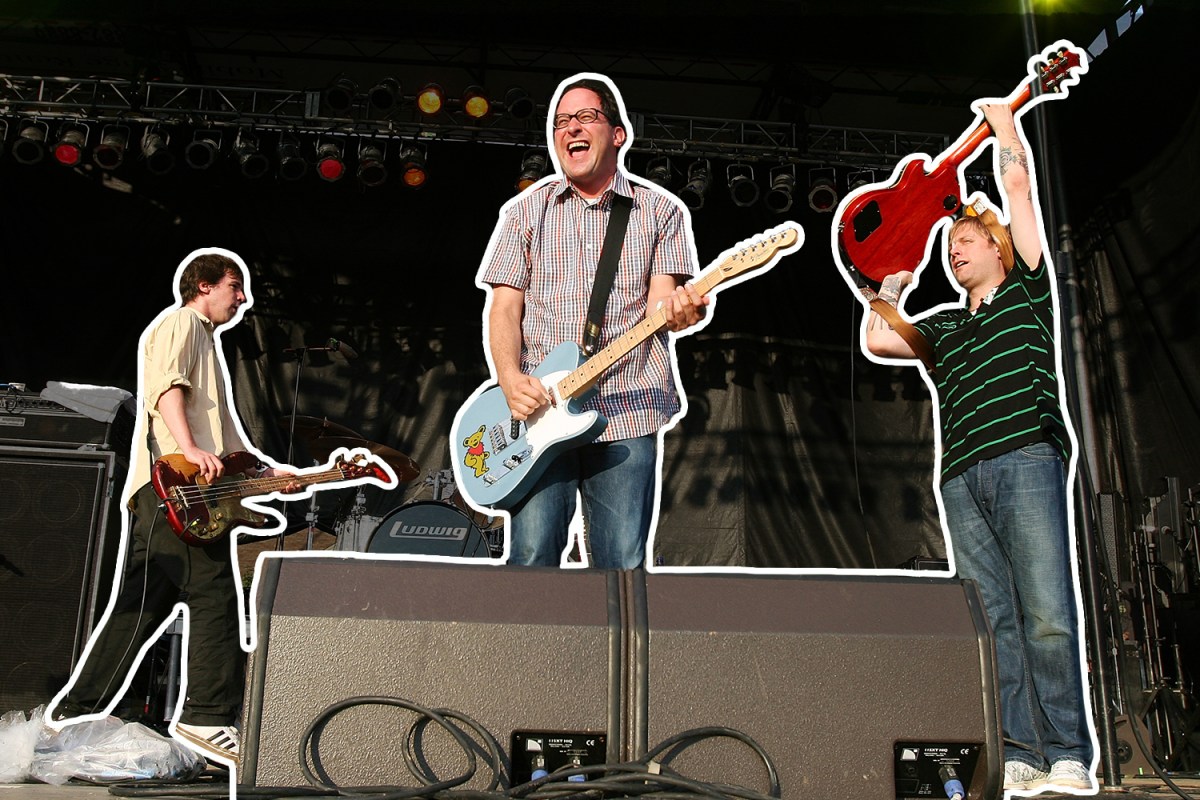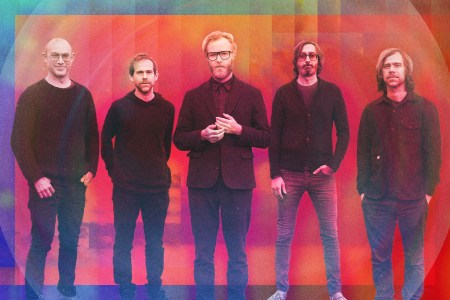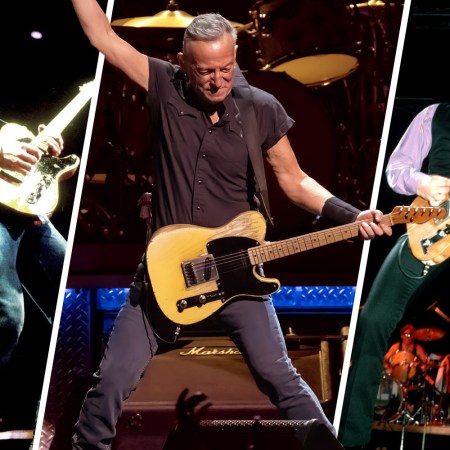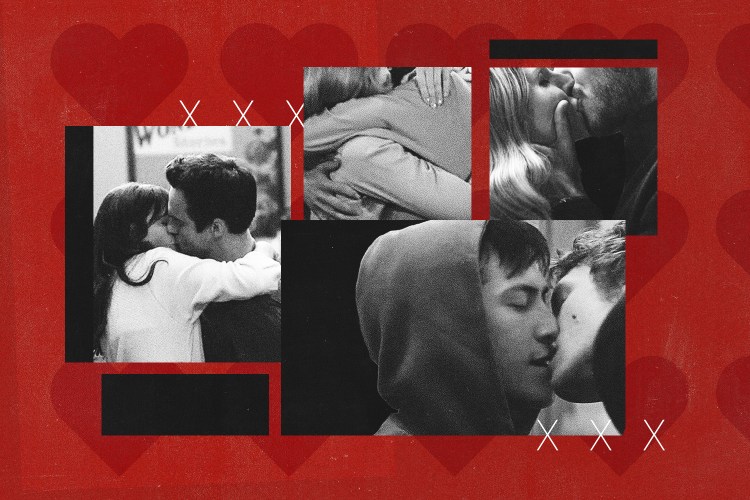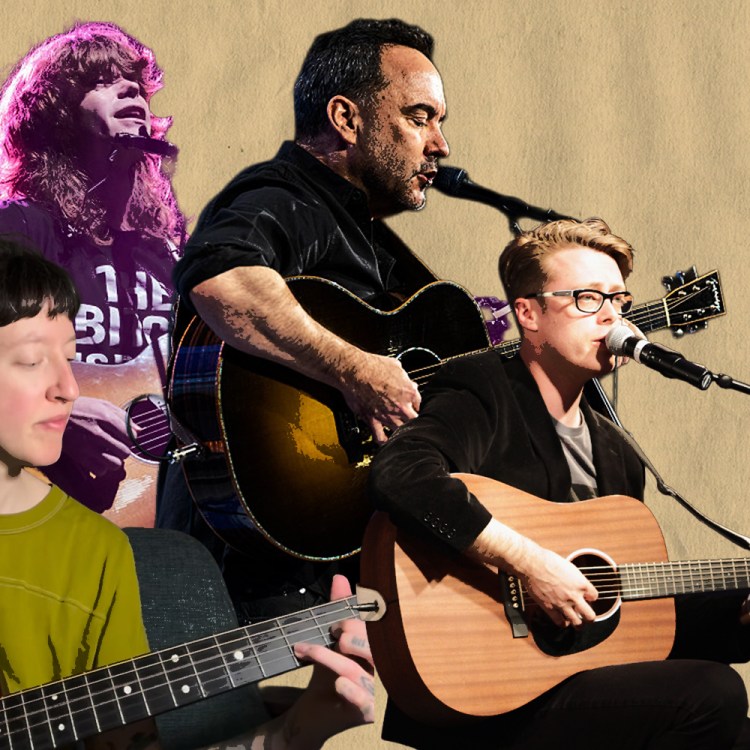In a recent discussion celebrating Brooklyn rock band The Hold Steady’s 20th anniversary, frontman Craig Finn told comedian, talk-show host and superfan Seth Meyers that the band’s new album, The Price of Progress, is their ninth, and he mused about the lack of classic album nine references in the history of rock. They attempted to look at what similar-minded bands were doing on their ninth albums, Finn explained, but didn’t find much that was especially memorable. (Literally: Finn looked up Cheap Trick’s ninth album and realized he wasn’t sure if he’d ever heard of it.) The positive flipside of this, the band noted, is that “a ninth album is unlikely to make or break you,” joking about a potential fan who was somehow unmoved by their previous eight studio records (chronicling, as they all do to some degree, the tragicomic misadventures of displaced and misplaced Midwesterners) but somehow really clicked into the band’s vibe on the ninth try.
Finn and his bandmates are right: there aren’t a lot of famous ninth rock and roll releases, which, if a band gets to make them at all, tend to be firmament albums. The Beatles’ White Album, perhaps the most famous and beloved ninth album ever recorded, feels like the exception that proves the rule. It’s famous and beloved for being an eclectic and fragmented double record that, in its way, helped hasten the impending end of the biggest band ever. No one in The Hold Steady mentioned it, but they’re actually surrounded by other examples on this year’s new-release calendar — their fellow indie-rock mainstays The National and The New Pornographers both released their respective ninth albums this spring, all solid work and equally unlikely to galvanize the fanbase or win new hearts and minds.
Stylistically, the rock and roll practiced by The Hold Steady, The National, and The New Pornographers doesn’t have much in common. But as the bands’ parallel histories indicate, they do have a certain kinship as acts that came up in the early-to-mid 2000s — and collectively made some of the best rock music that graced the iPods of 2003 through 2010. (If you want to get even more granular, all three bands arguably released their best-ever song in 2005.) This is not to say any of these acts have lost their mojo in the — wait, this can’t be right — 13-plus years since the end of the 2000s-era indie-rock explosion. It’s just that pop music in general has long been designated the stuff of youth and, as Finn and company pointed out, ninth albums are not typically where a bunch of new fans go through the on-boarding process, especially in a second-tier genre like rock and roll.
Of course, there will always be young people who discover older bands, but there will also always be younger bands for those young people to discover first or instead. I bought plenty of Dylan and Springsteen albums in my 20s, but they didn’t inspire quite the same sense of ownership as bands I was able to hop on earlier. Now those bands are making ninth albums, and sometimes I have to stop and think about which songs were actually on the seventh and eighth albums — and if I’ve actually listened to them in full since they came out. And then, instead of giving myself a proper refresher on their later-period work, I get distracted by grappling with that passage of time.
Paying better attention doesn’t always help. I saw The New Pornographers a few nights ago, and they looked old. Because they are gallantly polite Canadians, they didn’t hold up a mirror so that I could be reminded that I, too, am old. I did notice, however, that there were not a lot of young people anywhere in that room. Except me, of course, because I remain forever 25 in my head. That’s really what a band I love is doing when they make a ninth album: producing terrifying proof that my head is wrong.
A few artists do find pivots and ways to work around their own niche successes. The National, already the most commercially successful of this trio, has lucked into one, admittedly hard to replicate: simply be one of Taylor Swift’s favorite bands. Because Swift apparently loved the band’s moody, atmospheric sound, she recruited National member Aaron Dessner to produce Folklore and evermore. The latter, by the way, was her ninth album, the second half of her attempt to make that elusive “indie record that’s much cooler than mine,” once a vexing designation for an ex-boyfriend’s moping in “We Are Never Ever Getting Back Together.” (Given the oft-abused term “indie,” it’s entirely possible the ex-Swfitie in question was, in fact, just bumping some Pinkerton.)
Members of The National appear on those acclaimed Swift albums, and Swift herself guests on a track from First Two Pages of Frankenstein, the band’s recent ninth album. The sharp Atlantic piece, “Taylor Swift and the Sad Dads,” explains the subtle ways Swift may have influenced The National, both lyrically and musically, just as they clearly influenced her pseudo-indie diptych. Swift, being one of the savviest and most worshiped figures in current pop, has helped to rebrand what might otherwise be referred to as Dad Rock, emphasizing its moody textures and layered instrumentation over its more overtly middle-aged qualities. (As with a lot of Swift’s innovations, she didn’t do this first, just more effectively; this handy InsideHook taxonomy of the not-really-genre was classifying The National as Sad Dad Rock while arguing against the term as a pejorative four years ago.)
The 25 Best Songs by The National
From their 2001 debut to their latest album, these are the band’s best tracksOf course, not every band releasing their ninth or 10th or 15th album can hope to get T-Swift on their side, just as not every (any?) 2000s rock band can hope for The Rolling Stones-style lifetime pass on doing rock-and-roll antics without getting dismissed as the zany guy overstaying his welcome at the barbecue. Largesse from Swift, or perhaps placement during a pivotal moment of an HBO series, are invaluable one-off boosts for a genre that, in corporate terms, isn’t really a growth industry anymore. This downish long-term forecast means the past 20 years’ worth of rock bands tend to be more middle-class — and less likely to buy themselves some automatic Stones-style presumed relevance.
The last big surge in cool rock music, circa 2001 or so, coincided with the peak and impending collapse of the music industry. Now, the dominance of streaming threatens to demote these middle-class bands to hobbyists at any moment. Sad Dad Rock, New Pornographers-style power-pop (increasingly midtempo, at that) or Hold Steady-style punk-meets-pub-rock storytelling all might as well be model trains in someone’s basement. Dad Rock may have been reclaimed, but what about when it’s Grandpa Rock?
And yet, watching The Hold Steady talk to Meyers about their later-period process, I felt a swell of appreciation for their middle-class bona fides and a respite from my own anxieties about aging. The band discussed their “workflow” and how it now involves a series of DropBox folders, and then laughed at how ridiculously old and un-rock that sounds. Making art isn’t just whimsical inspiration; it’s work, and it’s a process. (See also Kelly Reichardt’s terrific recent movie Showing Up.) Work resists clichés about sophomore slumps or back-to-basic returns to form.
Meyers also pointed out that the band seems to be writing a bit older these days. Their earlier characters, who recurred across the band’s now-classic first three records, tended to be young, feckless types, careening through a misspent youth, looking for some kind of salvation (albeit written with some middle-aged wisdom). The Price of Progress isn’t all about dudes circling 50, but Finn’s eye and ear for more quotidian-sounding struggles is all over some of their best new songs. In “Carlos Is Crying,” he details a dude-group’s touching uncertainty about how to best comfort their friend who has burst into tears (“and yeah, we’ve been drinking, but it’s different for boys”). In “Sideways Skull,” the narrator talks about a young woman he seems to know from a halfway house with designs on the uphill battle of establishing a kick-ass rock band (“the pesky problem of the tepid turnout”). It’s a lot sharper and more involving than when rock bands get deep into their workhorse lifestyle and write a bunch of songs about touring. (The Hold Steady already sorta satirized this stuff with “Rock Problems,” way back on album five.)
Is this just flattering the band’s aging audience? Re-establishing courtship with a demographic that’s getting too old for even a throwback mosh? Possibly, but it’s also a beautiful example of rock and roll aging gracefully. What a blessing to find such well-written songs relatable! It’s worth noting that none of these three bands took an especially extended hiatus or pseudo-breakup period during their 20-plus years — which seems like it’s great for business when the band reunites but depriving members the opportunity to find a stable way of working together in their 30s and beyond. Instead, they pushed through and got far enough into a discography that the attendant stereotypes have fallen away.
Whether future rock bands will be able to follow suit remains an open question. The Hold Steady, The New Pornographers and The National captured their initial fan bases at a time when people still sometimes spent money to buy specific albums from artists or labels or stores, rather than rent most albums from Spotify (and then mix them in with all the other albums, perhaps to enhance the illusion that it’s all just stew from the same restaurant). Presumably, they have enough old-folk holdovers who still might shell out for a vinyl LP or t-shirt or concert tickets.
But musical acts — especially rock and roll acts — coming up in the 2020s don’t have much of a chance to actually make a living making music, so future versions of the middle-aged chronicles currently drawn with such complexity on The Price of Progress or The First Two Pages of Frankenstein may not reach enough of an audience, if they get recorded at all. Stratospheric stardom may become less of a best-case scenario than the only way to make a sustained living. “Now every conversation I have is about money,” the distressed character laments on “Carlos Is Crying,” encapsulating why The Price of Progress is such a vital listen — and why in the future, a ninth album may go from unremarkable part of the firmament to pipe dream.
This article appeared in an InsideHook newsletter. Sign up for free to get more on travel, wellness, style, drinking, and culture.
